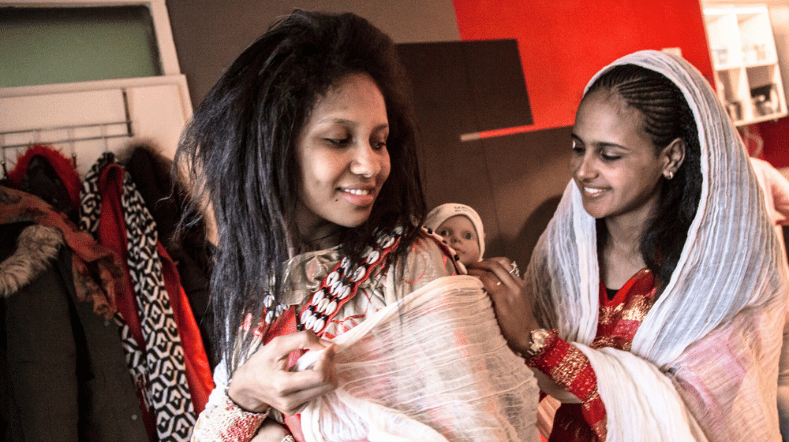
Systems innovation in learning communities: understand, innovate, implement
We as a society are facing a range of wicked problems. One of the examples is increasing equality of opportunity among children and integrating more jobseekers into the labour market over the long term. Collaborating in cross-organisational learning networks is proving to be a successful method in resolving these kinds of challenges. TNO is committed to underpinning this multidisciplinary approach by bringing together practitioners, the target group, municipalities, educators, scientists, and ’hands-on’ experts, and applying the theory in practice.
A lot of complex societal problems cannot be solved by conventional methods. In practice, it is a multidisciplinary approach combining all stakeholders, including scientists and researchers, policymakers, professionals, and education institutions, that proves beneficial. These learning networks are also known as learning communities, communities of practice, innovation labs, and collaborative centres.
How does a learning community work?
Bringing stakeholders together in a learning network also brings together all the knowledge and expertise on a given issue, allowing solutions to be worked towards. Typically, between five and 20 people from different public and private-sector social organisations form a learning network. By learning from each other and understanding each other’s perspectives and challenges, an issue can be better understood, so improvements can be developed and then applied in practice.
Action-focused, collective learning and equal collaboration between all stakeholders are the crux of a learning network. You don’t know ahead of time what solutions will be found to the issues at hand. While this can be looked at as a disadvantage, this way of working does produce a broadly supported and well-founded result.
Scientific foundation
Although learning networks are now being increasingly implemented in youth psychosocial care and public health care services and for active labour market policies there is still little systematic knowledge available on what works exactly. There is still a lack of scientific evidence of what does and doesn’t work. And that is exactly what TNO is working on: demonstrating the added value of this systems innovation. Over the past few years, we have already gained a great deal of expertise on learning networks through various practical projects and studies – both large and small. This led to the development of the Learning networks in the social domain (LISO) framework, the first scientific underpinning of learning networks.
Solving specific issues
LISO is based on scientific literature and expert advice. It has developed a solid foundation to help practitioners set up and evaluate their own learning networks. The framework shows what is important in a learning network, what principles work well, and what the building blocks are.
TNO uses the framework as a backbone to solve complex issues in practice. This always involves collaboration with all stakeholders; only then can the issue be properly analysed and then innovations developed to resolve it.
Start or evaluate learning network?
Is your organisation thinking of starting a learning community? Or would you like to evaluate your existing learning network? Take a look at our online LISO tool (with explainer) and get in touch for training and advice.
Learning networks handbook
TNO is currently working on a handbook, with recommended actions for the parties involved in learning networks in the social domain. This handbook is expected to be published in late 2024 and will discuss the major challenges facing learning networks, as well as providing a more detailed explanation of the LISO framework, among other things.
Continuing to learn and develop
TNO's learning network methodology is aligned with the world of learning organisations. More and more large practice organisations in the social domain are recognising the importance of continuous learning and development. They are interested in what learning networks dedicated to professionalisation can do for them. The time for action is now, and it’s important to work systematically. That is where tools like the LISO framework, and soon the handbook, come in handy.
Examples of learning networks
SAMEN is a learning, working, and research community in youth care. The partnership consists of current and future practitioners, parents, young people, teachers, and lecturers from universities, municipal officials, and researchers. SAMEN learning networks tackle broad social issues such as normalisation, integrated working, child & complex parent relationships, and vulnerable families. Its strength lies in continuous and equal collaboration, learning, and improvement, with the aim of fostering a safe and healthy upbringing for children and young people to give them the best opportunities possible.
Gewogen Maatwerk is a Community of Practice that sees TNO, municipalities, Tilburg University, Rotterdam University of Applied Sciences, Divosa, and SAM teaming up to look at how reintegration can be improved. This is done by working in communities to explore the complex issues of implementation in that practice. In this way, knowledge is developed that really benefits practitioners.
Youth participation in research is a learning network that involves young people and researchers working together on the quality, ethics, and practice of participation of young people in research. As one example, guidelines have been drawn up on how to work with young people in research, which the learning network is continuing to flesh out. What do we think of the current situation? What are the lessons and hopes for the future?
Lerend Netwerk Bedrijven is a learning network of businesses set up by P-Centrum, a number of knowledge institutions, and a consortium of companies. The intention is for this network to allow employees in participating companies to share knowledge and experience – a more effective method for the traditional second re-integration track (starting work with another employer).
Get in touch!
If you want to know more about what we are doing in learning networks or even set up a learning network yourself, please feel free to contact us.
Get inspired
How TNO is improving the health of a million mothers and children


Group Care during the first 1000 days makes a difference around the world


Personalised prevention and health


Eight things to know about the D-score


D-score in practice: simplifying the complexity of a childs development


